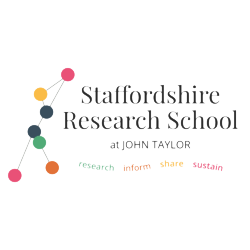English Literature
Introductory Video
Subject Specification
Subject Page from the Prospectus
A-level English Literature
Are you passionate about reading and exploring the deeper meanings behind literary texts? The A-level English Literature course offers a rich and rewarding study of novels, plays, and poetry from different periods, enabling you to develop critical thinking, analytical skills, and a profound appreciation for literature.
Why Study English Literature?
- Develop Analytical Skills: Learn to interpret complex texts, explore themes, and understand context.
- Enhance Communication: Strengthen your written and verbal skills by crafting well-structured essays and presenting persuasive arguments.
- Broaden Perspectives: Discover how literature reflects societal values, cultural differences, and historical changes.
Course Breakdown
- Paper 1: Love Through the Ages
Explore the theme of love across a variety of texts from different genres and time periods, including Shakespeare’s Othello, The Great Gatsby and a range of poetry from Renaissance sonnets to modern verse.
- Paper 2: Texts in Shared Contexts (WWI and its Aftermath)
Analyse literature that responds to the trauma, heroism, and disillusionment of the war, including Wilfred Owen’s poetry, the play The Wiper’s Times, and the novel Regeneration. Or
- Non-Exam Assessment (NEA): Independent Critical Study
This component gives you the freedom to choose two texts and write a comparative essay on a theme of your choice. The NEA encourages independent research, critical thinking, and engagement with literary theory.
Skills You'll Gain
- Textual Analysis: Learn to analyse language, structure, and form in literature.
- Critical Thinking: Engage with different interpretations and perspectives.
- Writing Expertise: Develop clear, concise, and persuasive essays.
- Research Skills: Conduct in-depth analysis of texts and their contexts.
Assessment Structure
- Paper 1: Love Through the Ages (40% of A-level)
- Paper 2: Texts in Shared Contexts (40% of A-level)
- Non-Exam Assessment (NEA): Independent Critical Study (20% of A-level)
What Can English Literature Lead To?
A-level English Literature opens doors to a wide range of fields such as:
- University Degrees: English, Law, Journalism, History, Politics
- Careers: Teaching, Media, Publishing, Advertising, Public Relations, and more
Ready to Begin Your Literary Journey?
Embark on a journey through some of the most influential texts in literary history. Whether you enjoy exploring timeless classics or diving into modern works, A-level English Literature will challenge you to think critically and express your ideas with confidence.
Entry requirements: Typically, a grade 6 or higher in GCSE English Language or GCSE English Literature is required.









